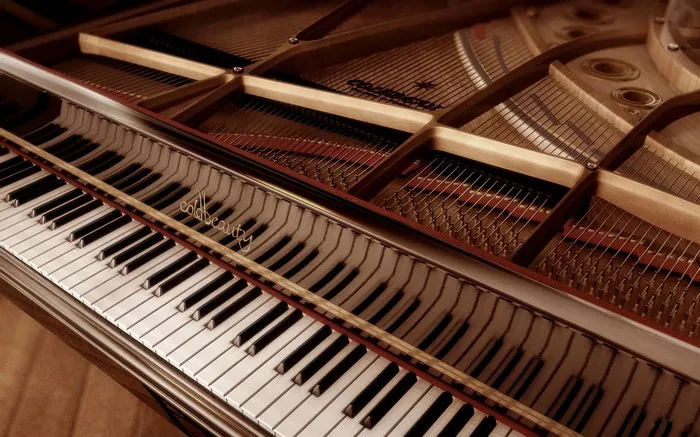Classical music, with its timeless melodies and complex harmonies, has captivated audiences for centuries. But who can be credited with the invention of this remarkable genre? The development of classical music is a product of the collective efforts and contributions of countless composers, musicians, and scholars across different eras. In this article, we will explore the evolution of classical music and shed light on some of the notable figures who played a pivotal role in shaping this extraordinary art form.
1. The Birth of Classical Music
Classical music emerged in the late 16th century, during the transition from the Renaissance to the Baroque period. It was a time when new musical forms, structures, and techniques were being explored. While it is difficult to attribute the invention of classical music to a single individual, several key figures laid the foundation for its development.
2. Claudio Monteverdi: Pioneer of Opera
One of the earliest figures in the history of classical music is Claudio Monteverdi (1567-1643), an Italian composer and musician. Monteverdi is renowned for his groundbreaking work in opera, which marked a significant departure from the polyphonic vocal style of the Renaissance. His opera “L’Orfeo” is considered one of the first great masterpieces of the genre and contributed to the establishment of opera as a prominent form of musical expression.
3. Johann Sebastian Bach: Master of Baroque Music
Moving into the Baroque period, Johann Sebastian Bach (1685-1750) emerges as a towering figure. His prodigious output of compositions across various forms and genres laid the groundwork for the development of classical music. Bach’s intricate contrapuntal writing, profound harmonic language, and virtuosic keyboard works continue to influence musicians to this day.
4. Wolfgang Amadeus Mozart: Child Prodigy and Musical Genius
Wolfgang Amadeus Mozart (1756-1791) is often hailed as one of the greatest composers in the history of classical music. Mozart’s extraordinary talent manifested at a young age, and he composed over 600 works in his short life. His symphonies, operas, concertos, and chamber music exemplify the classical style and showcase his impeccable craftsmanship and gift for melody.
5. Ludwig van Beethoven: Bridging the Classical and Romantic Eras
Ludwig van Beethoven (1770-1827) stands as a pivotal figure who bridged the gap between the Classical and Romantic periods of classical music. Beethoven’s compositions pushed the boundaries of musical expression and experimentation. His symphonies, such as the iconic Ninth Symphony, expanded the scope and emotional depth of orchestral music, cementing his status as a revolutionary composer.
6. Franz Schubert: The Lyrical Craftsman
Franz Schubert (1797-1828) was a master of melodic invention and lyrical expression. His songs, or Lieder, epitomize the Romantic spirit, and his compositions encompass a wide range of genres, including symphonies, chamber music, and piano works. Schubert’s ability to convey profound emotions through music solidifies his position as a prominent figure in the development of classical music.
7. The Great Masters of the Classical Era
Beyond these notable individuals, the development of classical music owes much to the collective contributions of the great masters of the Classical era. Composers such as Joseph Haydn, Wolfgang Amadeus Mozart, and Ludwig van Beethoven played a crucial role in establishing the forms and structures that define classical music. Their symphonies, sonatas, and concertos are revered as timeless masterpieces, showcasing their ingenuity and mastery of composition.
8. The Innovators of the 19th Century
The 19th century witnessed a wave of innovation in classical music, thanks to composers who pushed the boundaries of traditional forms and ventured into new musical territories. Richard Wagner revolutionized opera with his concept of the Gesamtkunstwerk, or “total work of art,” which integrated music, drama, and staging. Frederic Chopin’s poetic and expressive piano compositions brought new dimensions to the instrument, while Franz Liszt’s virtuosic piano playing and symphonic poems showcased his innovative approach to composition.
9. The Nationalists and Impressionists
In the late 19th and early 20th centuries, a wave of nationalist composers emerged, infusing their music with elements of their respective cultural identities. Bedřich Smetana and Antonín Dvořák celebrated Czech folk traditions in their compositions, while Jean Sibelius incorporated Finnish melodies and landscapes into his symphonic works. Meanwhile, Claude Debussy and Maurice Ravel pioneered the Impressionist movement in classical music, utilizing innovative harmonies and tone colors to create evocative and atmospheric compositions.
10. The Modernists and Beyond
As the 20th century progressed, classical music underwent further transformations with the rise of modernism. Composers like Arnold Schoenberg, Igor Stravinsky, and Béla Bartók pushed the boundaries of tonality, experimenting with atonality, polyrhythms, and unconventional forms. These innovative composers challenged traditional notions of music, sparking debates and ushering in new avenues for artistic expression.
Conclusion
While it is impossible to pinpoint a single individual as the inventor of classical music, it is clear that the genre evolved through the collective contributions of numerous composers over centuries. From the pioneering work of Claudio Monteverdi and the prolific output of Bach, to the genius of Mozart and Beethoven, and the innovative approaches of composers like Debussy and Stravinsky, each figure played a vital role in shaping classical music.
The invention of classical music was a continuous process of exploration, experimentation, and pushing the boundaries of musical expression. The art form continues to evolve to this day, with contemporary composers exploring new sounds, incorporating technology, and embracing diverse influences.
As we listen to the masterpieces of classical music, we should not attribute its creation to a single inventor but rather appreciate the collective genius and dedication of the countless composers, musicians, and scholars who have enriched this extraordinary art form throughout history. Classical music is a testament to the power of human creativity, capable of evoking emotions, transcending boundaries, and inspiring generations to come.

